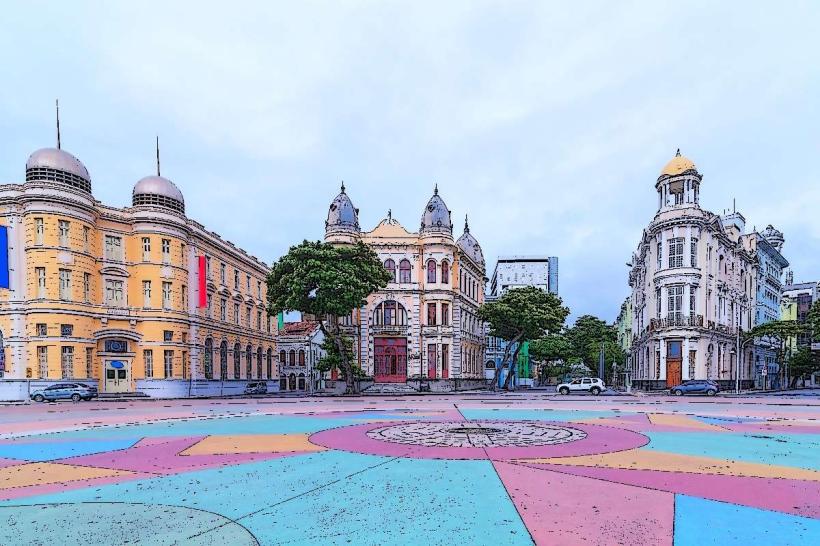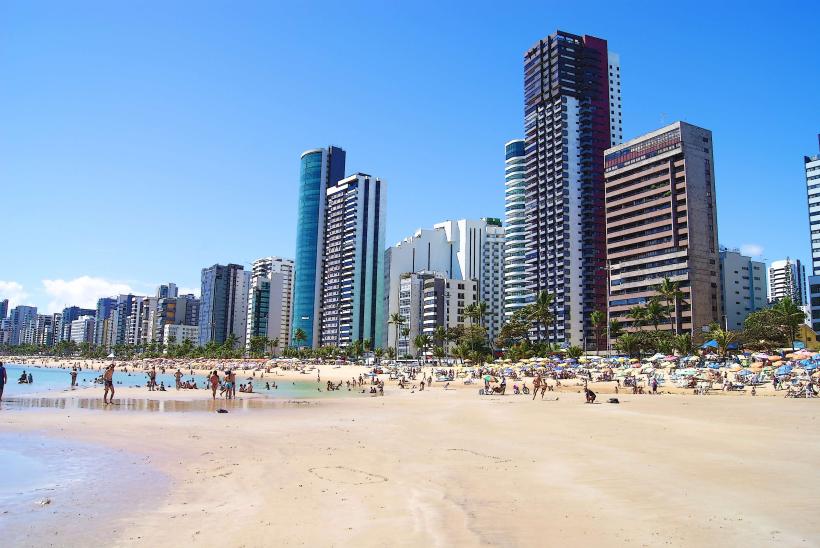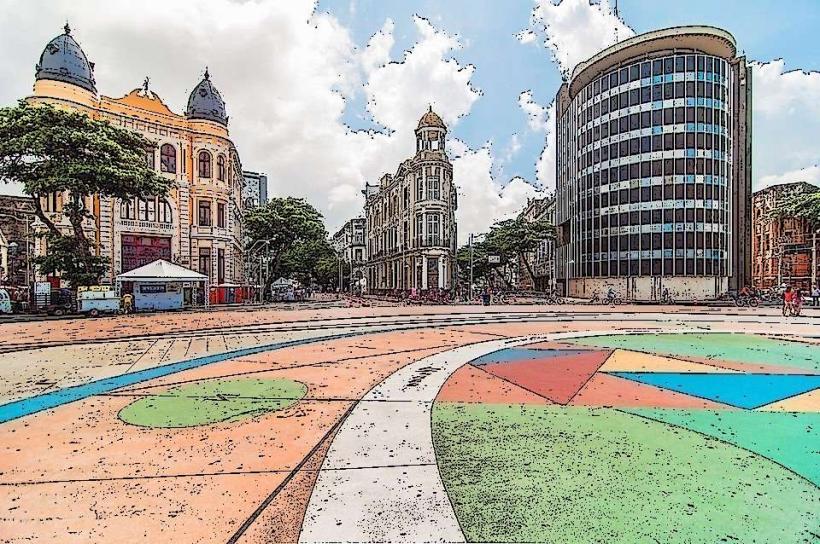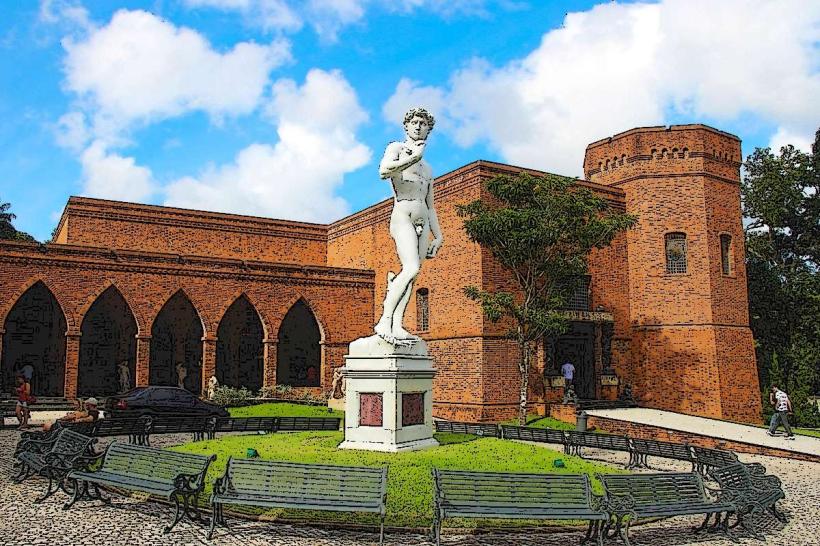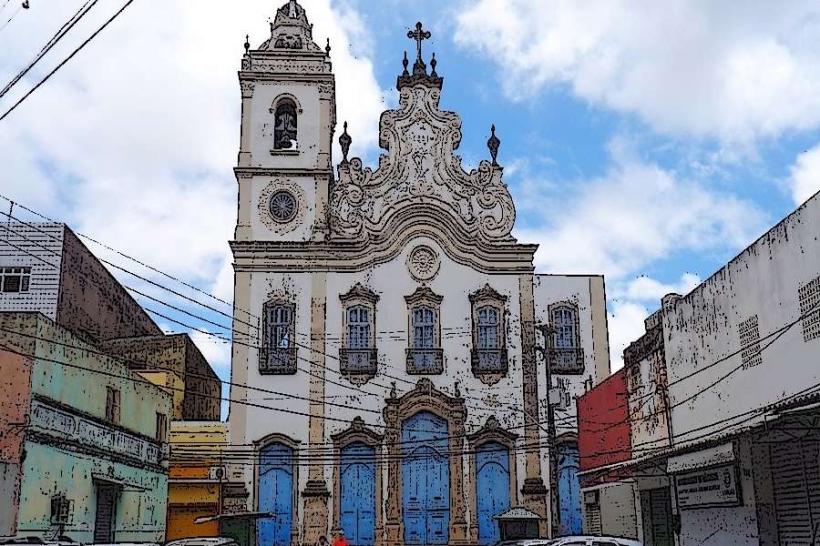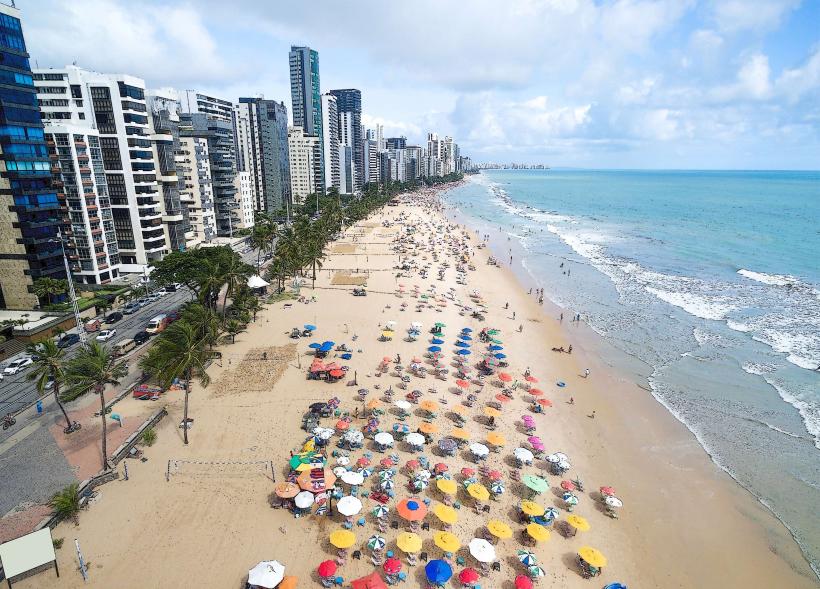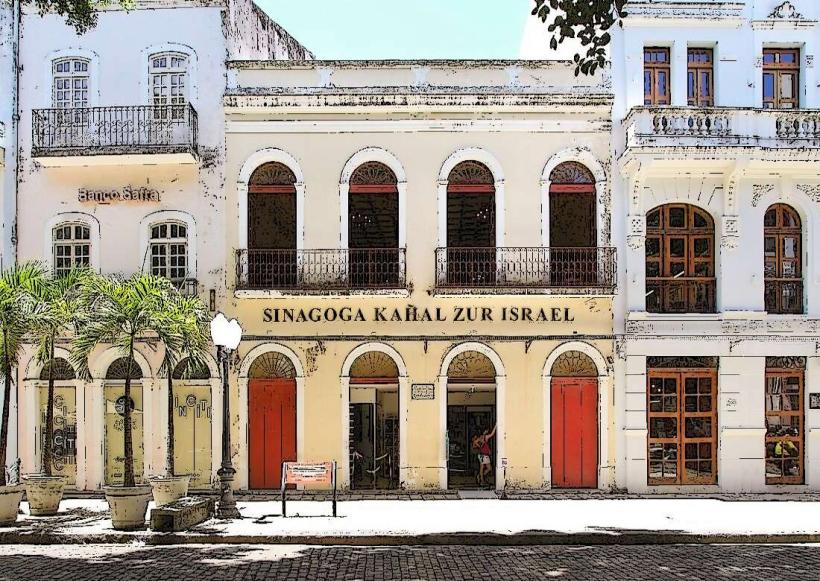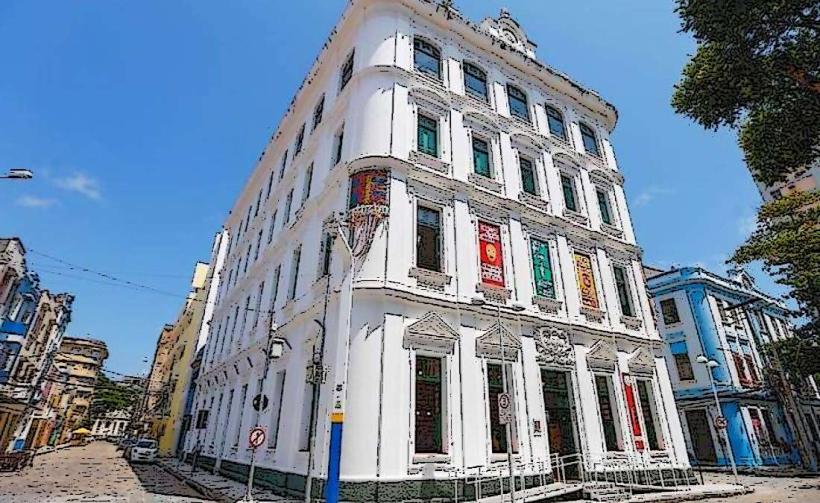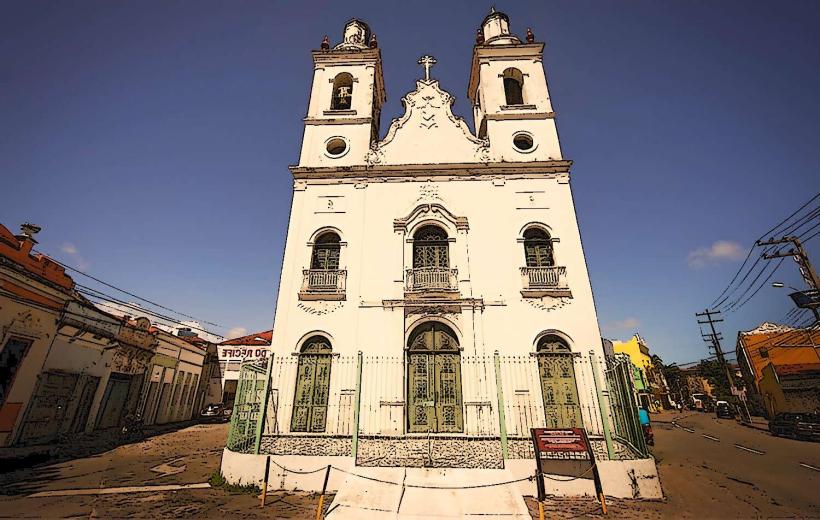Information
City: RecifeCountry: Brazil
Continent: South America
Recife, Brazil, South America
Recife serves as the maritime gateway and technological capital of Northeast Brazil, functioning as the headquarters of the state of Pernambuco. It is situated at the confluence of the Beberibe and Capibaribe rivers, characterized by an urban geography of islands, peninsulas, and over 50 bridges, earning it the moniker "The Brazilian Venice."
Historical Timeline
Founded in 1537 by the Portuguese, the city’s most significant era of urban development occurred during the Dutch Occupation (1630–1654) under Johan Maurits of Nassau. The Dutch transformed a small fishing port into "Mauritsstad," introducing the first bridges and botanical gardens in the Americas. Following the Portuguese reconquest, Recife became a center of sugar exports and revolutionary movements (e.g., the 1817 Confederation of the Equator). The current urban form is defined by the Porto Digital initiative (est. 2000), which revitalized the historic center into one of Latin America's primary tech hubs.
Demographics & Population
The metropolitan population is approximately 4.2 million. The city is the 9th most populous in Brazil. The demographic is a synthesis of Portuguese, African, Dutch, and Jewish heritages. It has a high density of healthcare professionals and researchers, housing the second-largest medical cluster in Brazil after Sao Paulo. The median age is 33.1 years.
Urban Layout & Key Districts
The city is divided into several water-locked sectors:
Recife Antigo (Old Recife): Located on an island, it is the historic port area and the current center for the tech and creative industries.
Boa Viagem: The affluent coastal district in the South Zone, containing most hotels and high-rise residences.
Santo Antônio & São José: The traditional commercial and administrative heart.
Casa Forte / Espinheiro: Upscale residential wards in the North Zone, known for traditional architecture and greenery.
Top City Landmarks
Marco Zero: The geographic starting point of the city in the heart of Old Recife.
Ricardo Brennand Institute: A world-class museum and medieval-style castle housing a massive collection of Frans Post paintings and weaponry.
Boa Viagem Beach: Famous for its reef-protected waters and skyline (noted for shark warning signs).
Kahal Zur Israel Synagogue: The first synagogue in the Americas (built 1636).
Paço do Frevo: A museum dedicated to the preservation of Frevo music and dance.
Transportation Network
Movement is highly affected by the city’s water-based geography, leading to frequent bottlenecks at bridge crossings.
Metro: A two-line system serving the central and southwestern corridors; it is often overcrowded during peak hours.
Bus: The SEI (Integrated Structural System) allows transfers between various terminals.
Ride-sharing: Uber and 99 are the standard; avoid walking between districts like Recife Antigo and Santo Antônio at night.
Air: Guararapes International Airport (REC) is a major hub for the Northeast and consistently ranks among the best in Brazil.
Safety & "Red Zones"
Recife has a high rate of urban crime compared to Southern Brazilian capitals.
Red Zones: Avoid the "Bairros das Ilhas" (Islands) and central shopping districts after business hours. Favelas on the urban periphery should not be entered.
Precautions: Do not swim beyond the reefs at Boa Viagem due to the high risk of shark attacks. Avoid wearing visible jewelry or using expensive electronics in public squares.
Digital & Financial Infrastructure
Recife is a "Smart City" leader due to the Porto Digital tech park. Average internet speed is 105 Mbps. 5G is comprehensive in the South Zone and Recife Antigo. The Pix system is the standard. Card acceptance is universal in formal businesses. ATMs are abundant in malls (e.g., Shopping Recife and RioMar).
Climate & Air Quality
Tropical monsoon climate. Temperatures range from 22°C to 28°C in winter (June–August) and 25°C to 32°C in summer. Air quality is high in coastal areas due to constant trade winds. The city is highly vulnerable to sea-level rise and flooding during the rainy season (April–July).
Culture & Social Norms
Recife is the center of Frevo and Maracatu cultural expressions. Tipping is a standard 10% service charge. Greetings involve two cheek kisses. A unique social norm is the intense rivalry between the city’s three major football clubs: Sport, Santa Cruz, and Náutico.
Accommodation Zones
Boa Viagem: Recommended for 90% of visitors due to hotels, safety, and airport proximity.
Recife Antigo: Recommended for tech/business travelers and those attending Carnival.
Local Cost Index
1 Espresso: 8.50 BRL ($1.55)
1 Standard Lunch (Arrumadinho): 35.00 BRL ($6.40)
1 Taxi/Uber (5km): 22.00 BRL ($4.00)
Nearby Day Trips
Olinda: A UNESCO World Heritage colonial city (7 km / 20 minutes).
Porto de Galinhas: Renowned for natural tidal pools and clear water (60 km / 1 hour).
Caruaru: The "Capital of Forró," famous for its massive open-air market (135 km / 2 hours).
Facts & Legends
A prominent legend involves the "Old Woman of the Capibaribe," a ghost said to haunt the river's bridges. A verified historical oddity is that the first bridge in Latin America, the Maurício de Nassau Bridge, was built in Recife in 1643. Another fact: the Galo da Madrugada, which parades in Recife every Carnival Saturday, is officially recognized by Guinness World Records as the largest carnival block in the world.

